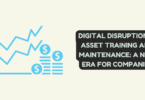
Business
Waste disposal is an important component of environmental protection. It is the process of disposing of waste materials in a way that prevents them from polluting the environment. This includes both solid and liquid waste, as well as hazardous and non-hazardous materials. Proper waste disposal helps to protect human health, conserve natural resources, reduce pollution, and maintain economic viability. As such, it is important for individuals to understand the various methods available for disposing of their waste safely and responsibly.
Causes of Waste Disposal Problems
Waste disposal has become an increasingly pressing issue in recent years as populations have grown and consumption of goods has increased. With this growth, the amount of waste produced by individuals and businesses is reaching alarming levels. Unfortunately, these waste disposal problems don’t just go away—they create environmental issues and public health concerns. When it comes to waste disposal, click the link: https://tidy.com.sg/.This article will discuss the causes of waste disposal problems so that we can better understand how to address them effectively.
One major cause of waste disposal problems is population growth. As more people move into urban areas, there is a greater need for housing, transportation, and resources—all of which lead to more trash production. Additionally, as population density increases in a given area, it becomes harder to manage municipal solid-waste streams efficiently and safely. This can result in overflowing dumpsters or landfills which are not properly managed or monitored leading to further environmental damage from leakage or contamination from hazardous materials like chemicals or medical wastes dumped illegally.
Another cause of waste disposal issues is consumerism—the idea that we must purchase new items even when our existing ones still work perfectly fine simply because it’s trendy at the moment.
Methods of Waste Disposal
In today’s society, it is important to properly dispose of waste to protect our environment and keep our planet healthy. Waste disposal methods can be divided into three main categories: recycling, composting, and landfills. Each of these methods has its advantages and disadvantages, but when used together they can provide a comprehensive approach to waste disposal.
Recycling is the process of collecting and sorting materials for reuse. This includes paper, plastic containers, cans, glass bottles, and other items that are not biodegradable or hazardous. Recycling helps reduce the amount of waste that goes into landfills by breaking down products into their original components so they can be reused or repurposed for new products. The benefits include reducing the need for virgin resources such as raw materials from nature required to make new products; reducing energy consumption; preserving natural habitats; conserving water resources; saving money on disposal fees; creating employment opportunities in the recycling industry; and helping reduce global warming through carbon dioxide emissions reduction due to less manufacturing needed when using recycled materials instead of new ones.
Composting is a natural process that converts organic material such as food scraps into nutrient-rich soil that can be used for gardening or agriculture purposes.
Benefits of Proper Waste Disposal
Proper waste disposal is an important part of keeping our communities safe and healthy. It helps to keep waste out of our water supply, reduces the spread of disease, and keeps hazardous materials from contaminating soil and groundwater. Additionally, proper waste disposal can have economic benefits for businesses and households alike. Here are some of the key benefits of proper waste management:
- Environmental Protection: Proper disposal helps to ensure that hazardous materials are not released into the environment, which can cause serious health issues for people and animals alike. When done correctly, it also reduces air pollution from burning trash and prevents toxic chemicals from leaching into the soil or water supply.
- Reduced Spread of Disease: Improperly disposed garbage can be a breeding ground for bacteria and other microorganisms that may cause illnesses in humans or animals if ingested or inhaled. Proper disposal avoids this problem by making sure that all refuse is properly contained until it can be safely removed from areas where people come in contact with it directly or indirectly (e.g., through food or drinking water).
Challenges associated with Waste Disposal
As the world’s population grows so does the amount of waste we produce. Unfortunately, disposing of this waste safely and responsibly is becoming increasingly difficult. Waste disposal poses a range of challenges that must be addressed if our environment is to remain healthy and sustainable.
One of the main challenges associated with waste disposal is finding suitable sites for landfills. These are areas where solid trash can be stored in an effort to reduce environmental damage. However, landfills require large amounts of space and often pose health risks due to the possibility of toxic materials leaching into nearby soil or water sources. As such, it can be challenging to find locations that are both safe and suitable for these types of facilities.
Another challenge that must be addressed is finding ways to reduce the volume and toxicity of various types of waste before they are disposed of in landfills or other sites. This includes properly recycling items such as plastics, metals, paper products, glass bottles, etc., which can help reduce strain on natural resources and prevent hazardous materials from ending up in our environment or water supply systems. Additionally, proper disposal practices should also be implemented for medical-grade wastes such as needles or sharps containers. This will help prevent injury from discarded items.
Solutions to Reduce Wastes and Improve Waste Management
With the world becoming increasingly aware of environmental issues and the need for sustainable solutions, waste management is an issue that is gaining more attention. Waste management involves collecting, transporting, treating, and disposing of solid waste in order to reduce its negative effects on health and the environment. There are a variety of solutions available to reduce waste and improve waste management.
One solution is source reduction or waste prevention. This involves reducing the number of materials used in production processes or products by using fewer materials or packaging. Many companies have adopted this strategy as part of their sustainability plans by using reusable containers instead of single-use plastics or implementing refillable systems for products like shampoo bottles. This helps to reduce both material use and energy consumption associated with manufacturing new items from scratch each time they are needed.
Another solution is reuse, which involves reusing existing materials rather than discarding them after one use. For instance, many stores offer refillable containers for products like soap that can be reused multiple times before needing to be replaced rather than buying a new container every time it runs out. Reuse also helps reduce transportation costs associated with shipping new items since fewer trips back and forth from warehouses are required when old items are reused instead of replaced with new ones each time they run out.
Conclusion:
Waste disposal is an important environmental issue that needs to be taken seriously. It requires a comprehensive approach to managing and disposing of waste responsibly in order to protect the environment and human health. This includes reducing the amount of waste that is created, recycling whenever possible, and safely disposing of non-recyclable materials. Governments need to ensure that proper systems are in place for the responsible disposal of all types of waste materials, from household items to industrial pollutants. By properly managing our waste, we can make a positive contribution towards protecting our planet for future generations.






